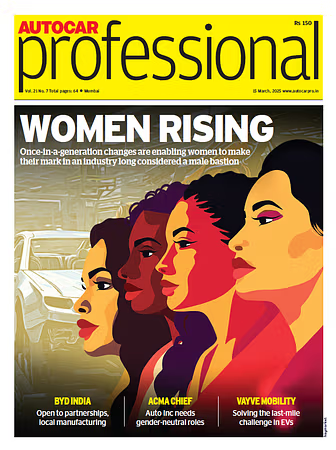SMEV asks NITI Aayog to hike electric two-wheeler subsidy to Rs 40,000 per unit
The Society of Manufacturers of Electric Vehicles moots raising of subsidy to make high-speed, lithium battery-equipped electric two-wheelers attractive to buyers in India.
The Society of Manufacturers of Electric Vehicles (SMEV) in its letter dated August, 9, 2017, has asked the government’s policy think-tank NITI Aayog to incentivise any manufacturer which sells fully CMRV-certified, BIS-certified lithium battery electric two-wheelers at a price of Rs 40,000 anywhere in the country.
In the letter sent by Sohinder Gill, director - Corporate Affairs, SMEV, to Rajiv Kumar, the new deputy chairman of NITI Aayog, Gill says the government’s vision of making India’s passenger mobility all electric, shared and connected by 2032 is in sync with SMEV’s focus.
However, despite electric two-wheelers being an easy route for adoption of electric mobility in the country, the industry as a whole has just sold barely 15,000-20,000 electric scooters per year as compared to around 17 million petrol-engined two-wheelers.
SMEV says that at present the production cost of high-speed lithium battery-equipped e-two-wheelers cost is an estimated Rs 100,000. In spite of the current government subsidy of Rs 22,000, the final purchase cost for consumers remains high, resulting in an estimated 99 percent of e-two-wheeler sales being of low-speed lead battery-equipped variants. As these low-speed scooters do not offer much of a positive ride experience, the need to influence market perception can only be met if high speed and better performing e-two-wheelrs can be made available at a cheaper price compared to their petrol counterparts.
Therefore, SMEV has asked NITI Aayog to raise its subsidy from the existing levels of Rs 22,000 to around Rs 40,000 for at least a year, effectively bringing the cost of E2Ws lower than petrol models and also encouraged two-wheeler manufacturers to plan for economies of scale.
To make sure that manufacturers do not take advantage of the subsidy to increase their margins, a fixed on-road price for electric two-wheelers should be kept at Rs 40,000. The subsidy should be directly transferred to the manufacturer to avoid chances of misuse by graft and middlemen.
RELATED ARTICLES
Rajiv Bajaj reappointed MD and CEO of Bajaj Auto for five-year term
Bajaj Auto’s Board of Directors has approved the re-appointment of Rajiv Bajaj as the company’s MD and CEO for another f...
JSW MG Motor launches Comet EV Blackstorm edition
The key highlights of the Comet EV Blackstorm, which is now the top-end variant, are its ‘Starry Black’ exterior along w...
Maruti Suzuki begins production at new Kharkhoda plant
Phase 1 of the Kharkhoda plant will have an annual production capacity of 250,000 units and produce the Brezza compact S...






 21 Aug 2017
21 Aug 2017
 8534 Views
8534 Views





 Autocar India
Autocar India



 Ajit Dalvi
Ajit Dalvi

